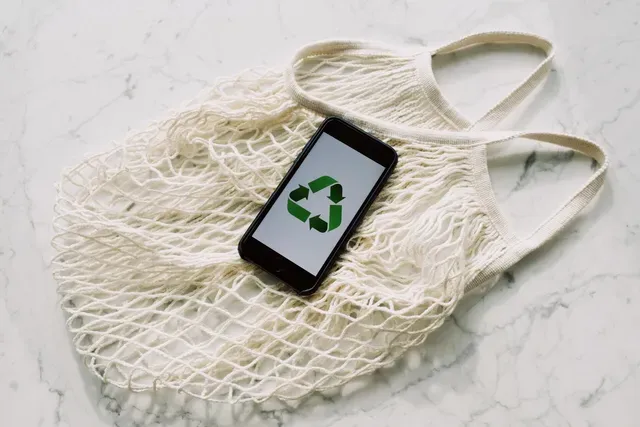How to Effectively Market Your Green Products and Services

With consumers becoming more environmentally-conscious, the demand for sustainable green products and services is accelerating. 80% of UK shoppers describe themselves as environmentally friendly. Green marketing differs from traditional marketing as you’re appealing to the consumer’s ethical concerns. Sustainable items and services usually have larger upfront costs than their cheaper alternatives and this can be dissuasive for consumers.
What is green marketing?
The term ‘green marketing’ can be applied liberally. Does the product save energy? Is it made from recycled materials? Is it produced locally? All of these are important features to green-conscious buyers. There’s a broad range of considerations to what constitutes a green product:
• Sustainable production with renewable or recycled materials
• Reducing packaging, transportation, energy and water use
• Can be reused
• Can be recycled
• Socially responsible
• Does not pollute or cause harm to wildlife.
Why are green products/services better?
It may be obvious to you, but you need to really spell out why your potential customers should choose you over a cheaper alternative. Explain how the item you’re marketing is more beneficial to the planet. Does it reduce carbon emissions? Is it made from materials that would have gone to waste? Is it renewable?
Consider your other green competitors. Their products are also environmentally friendly so you’ll have to convince people that you’re the superior choice. This is an ideal opportunity to present convincing statistics. How much recyclable material did you save from landfill? How many tonnes of carbon emissions have you saved? Make the numbers more relatable by comparing it to a measurement the user is more familiar with. What is the equivalent amount of carbon emissions in transatlantic flights?
Your products may be of a higher quality than your eco-friendly competitors. Explain that this means you won’t have to buy replacements as often. It’s more convincing if you can state how much money the buyer would save over months, a year or even a lifetime. Compare the average lifespan of your product to the industry standard. These are much more likely to compel your buyer into sticking with you.
With the world taking climate change more seriously, governments are committing to develop a greener economy. For instance, the UK government has pledged the country to produce net zero green house gas emissions by 2050. Your product may allow its buyer to prepare for the future as the government may discourage polluting goods in favour of environmentally-friendly ones. Use this in your marketing.
Finding your audience
What’s the best way to market to your audience? The most obvious one is utilising affinity targeting, where you can create audiences based on interests. Facebook’s paid advertising options facilitate this perfectly. Set up audiences that have interests likes: sustainability, environmentalism, zero waste renewable energy, energy conservation and so on. Check out Facebook’s suggestions for more ideas. Don’t forget to create the usual ad groups for those who have visited your website, those who have interacted with your Facebook and Instagram pages and their lookalikes, customer list lookalikes, and even friends of friends.
Those who are keen on sustainability love learning more about the topic and educating themselves on how they can improve their lifestyle. Write content-rich blog posts around environmentally friendly topics that have a connection to your green products or services. Use Google Trends to find out which precise topics are trending and create useful blogs about them. Make sure your posts are optimised for search engines and promote them across your social channels and to your email list.
Use Google Trends data to inform your PPC marketing for search engines too. If you’re in a crowded field, using keywords for recent trends could put you on an even or possibly better footing than your larger competitors.
The coronavirus pandemic has shoppers’ behaviours in favour of eco-consciousness. People are now more aware of the fragile environment and want help. There has been a lot of self-reflection on how much people need and want. The movement to buy better quality green products less often is facilitated by the government’s carbon reduction targets. If you’re in an eco-friendly industry, this will translate into more revenue if you have an intelligently-deployed marketing strategy.
At Primeria, we have collaborated with companies to promote environmentally-friendly products and services. Through our digital marketing, technological and creative solutions, we have successfully met our clients’ targets for lead generation, increased sales, and expanded brand awareness. Read more about our green sector marketing here.











